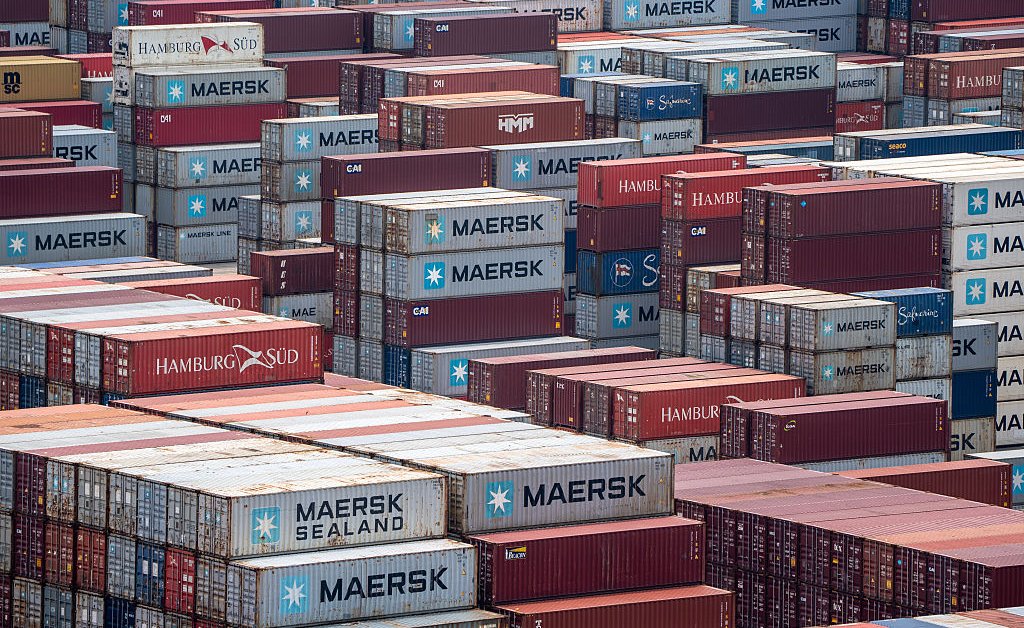Trade Wars, Climate Wins: Unexpected Opportunities
The escalating tension of trade wars often overshadows the potential for positive, albeit unexpected, consequences. While protectionist measures can stifle economic growth and harm specific industries, they can also inadvertently create opportunities for advancements in climate action. This seemingly paradoxical relationship warrants a closer look. This article delves into the unexpected link between trade wars and climate wins, exploring the opportunities and challenges they present.
How Trade Wars Can (Surprisingly) Spur Climate Action
At first glance, trade wars and climate action seem diametrically opposed. Trade wars often lead to increased domestic production, potentially increasing reliance on fossil fuels and harming environmental regulations. However, a nuanced analysis reveals several ways in which these conflicts can inadvertently promote greener practices:
1. Reshoring and Regionalization of Supply Chains: A Greener Footprint?
Trade wars often encourage companies to reshoring—bringing manufacturing back to their home countries—or to regionalize their supply chains. This can reduce transportation distances, significantly lowering carbon emissions associated with shipping goods across the globe. While the initial transition might involve some environmental costs, the long-term benefits of shorter supply chains can be substantial. For example, a company moving production from China to the US might experience higher energy costs initially but potentially lower overall carbon emissions due to reduced transportation.
2. Investment in Domestic Renewable Energy: A Necessary Shift
When faced with tariffs and trade barriers, nations might incentivize domestic production of renewable energy sources to reduce reliance on imported goods. This can lead to increased investment in renewable energy infrastructure and technology, fostering innovation and accelerating the transition to a cleaner energy system. The increased demand for domestically produced solar panels or wind turbines, for instance, could spark domestic manufacturing growth and job creation in the green sector.
3. Focus on Sustainable Practices to Enhance Competitiveness
Trade wars can force companies to improve their efficiency and competitiveness. Adopting sustainable practices, such as reducing waste and improving energy efficiency, can become crucial for remaining profitable in a more protectionist environment. Companies might invest in green technologies not only to reduce environmental impact but also to gain a competitive edge by showcasing their commitment to sustainability, attracting environmentally conscious consumers.
Challenges and Considerations
While the potential for climate wins exists, it's crucial to acknowledge the significant challenges:
- Increased Domestic Pollution: A rush to domestic production might lead to increased pollution if environmental regulations aren't adequately enforced or if outdated, less efficient technologies are adopted.
- Protectionist Measures Stifling Green Innovation: Trade restrictions can hinder the free flow of green technologies and innovations, limiting the pace of global climate action.
- Economic Disruption and Social Costs: The economic disruption caused by trade wars can have severe social consequences, potentially diverting resources away from environmental protection initiatives.
Navigating the Complex Landscape: A Path Forward
The relationship between trade wars and climate action is intricate and multifaceted. It's not a simple case of one leading directly to the other. Instead, it's a complex interplay of economic forces, political decisions, and environmental considerations. To maximize the potential for climate wins amidst trade tensions, several strategies are crucial:
- Strategic Investments in Green Technologies: Governments should strategically invest in research, development, and deployment of green technologies to ensure that domestic production is environmentally sustainable.
- Strong Environmental Regulations: Robust environmental regulations are crucial to prevent a shift towards less sustainable practices in the name of domestic production.
- International Cooperation: Despite protectionist tendencies, international cooperation remains essential for sharing best practices, promoting green technology transfer, and accelerating global climate action.
In conclusion, while trade wars pose significant economic risks and can negatively impact climate action in several ways, they also present unexpected opportunities for accelerating the transition to a cleaner energy future. By strategically navigating these complex dynamics and prioritizing sustainability, we can potentially transform these unintended consequences into meaningful climate wins. However, success requires careful planning, robust environmental regulations, and a commitment to global cooperation, even in times of heightened trade tensions.
